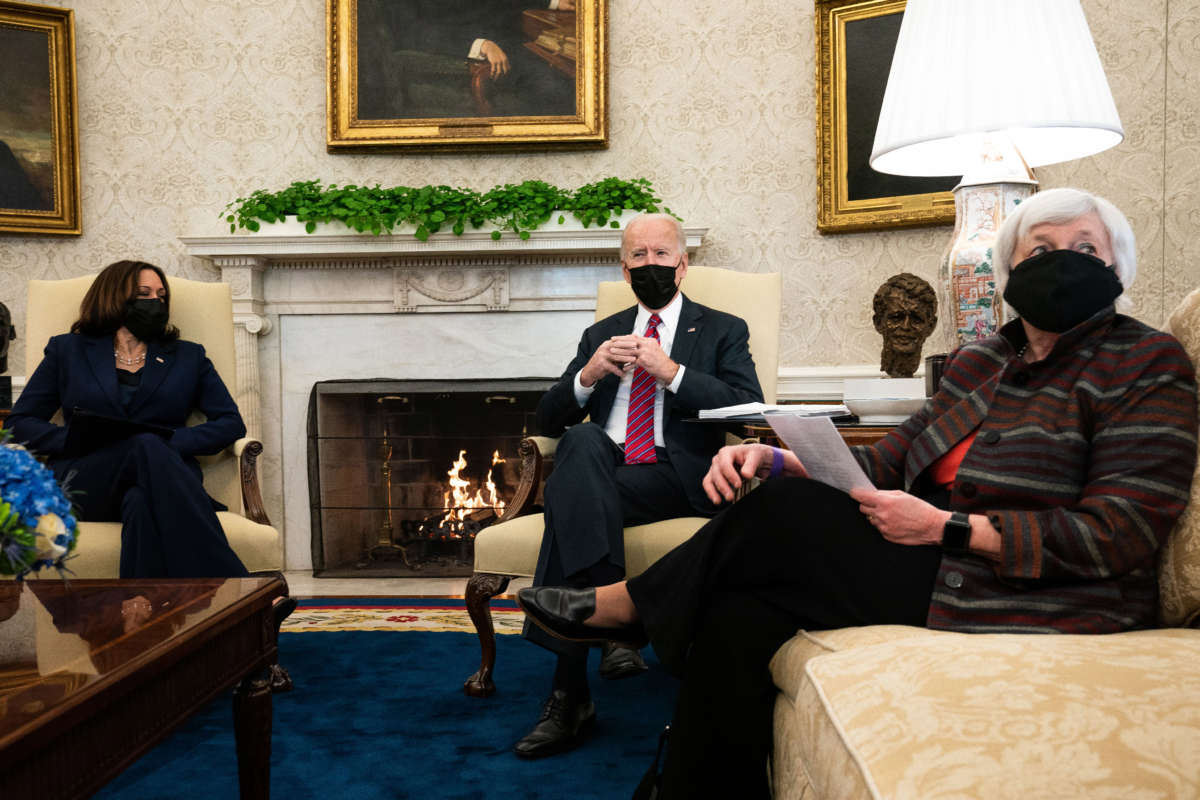Democrats are set to unveil a plan on Monday to flesh out President Joe Biden’s proposal to help tackle child poverty by sending families $3,000 per child and $3,600 per child under 6 over the course of a year.
The expanded child tax credit would be passed as part of the stimulus and would send $250 or $300 per child per month starting in July for one year. Similar to the current version of the relief checks, the program has a wage cap at $75,000 for individuals and $150,000 for couples, where the benefit diminishes, according to The Washington Post, which first reported on the bill. The bill is being led by Rep. Richard E. Neal (D-Massachusetts), the chair of the House Ways and Means Committee.
“The pandemic is driving families deeper and deeper into poverty, and it’s devastating,” said Neal in a statement to CNN. “We are making the Child Tax Credit more generous, more accessible, and by paying it out monthly, this money is going to be the difference in a roof over someone’s head or food on their table.”
According to the Center on Budget and Policy Priorities (CBPP), Biden’s proposal would lift nearly 10 million children above or closer to the poverty line and 1.1 million out of “deep poverty,” or 50 percent of the poverty line.
Though the expansion is only currently set for one year, there is a group of Democrats, including Rep. Rosa DeLauro (D-Connecticut), who have been trying to expand the child tax credit for nearly two decades, and pushing to make the expanded credit permanent. “One year is not enough for the children and families battling not just the coronavirus, but poverty, too,” Delauro told CNN.
The current child tax credit gives families up to $2,000 per child, but many families do not receive the full benefit because they don’t make enough taxable income. Biden’s expanded tax credit is fully refundable, which means that even those who owe $0 in taxes can receive the benefit of the credit.
Compared to other wealthy countries, the child poverty rate in the U.S. is relatively high, with about 4 in 10 children living in households that struggle to afford basic necessities like food and rent, according to CBPP, which writes that the pandemic has exacerbated these hardships.
Child poverty also disproportionately affects minority children in the U.S. and children living with a single mom, making this an issue of race and gender parity.
Last week, Sen. Mitt Romney (R-Utah) also introduced a plan to give parents checks, and it’s slightly more generous than the Democrats’ plan, giving parents with children under 6 $4,200 instead of $3,600 over a year. However, his plan also gets rid of a few government programs like Temporary Assistance for Needy Families and cuts food stamps, so it has gotten mixed reviews from the left.
Other Republicans are not as keen on the idea of expanding the child tax credit, fearing that the stimulus is already too big. But polls show major support for Biden’s stimulus, which is set to pass through Congress via a simple Democratic majority.
Democrats have tried pushing through a similar tax credit expansion before, and in 2019 introduced a plan called the American Family Act of 2019 to do so. It was introduced in the Senate but never received a vote.
The tax credit would be a boon to parents, but it would be a boon for women in particular. Women, especially single mothers, suffer disproportionately from poverty, data shows, and the tax credit would lend a helping hand to mothers who are struggling under the pandemic, some argue.
Sen. Cory Booker (D-New Jersey) also reintroduced a plan with Rep. Ayanna Pressley (D-Massachusetts) recently with the aim of helping children and parents. The “baby bonds” program would open a federally funded $1,000 savings account for every child at birth, which would then receive a deposit of up to $2,000 every year based on household income. With interest, children could theoretically have $50,000 in the account by the time they turn 18 and qualify to access the funds.
Join us in defending the truth before it’s too late
The future of independent journalism is uncertain, and the consequences of losing it are too grave to ignore. To ensure Truthout remains safe, strong, and free, we need to raise $43,000 in the next 6 days. Every dollar raised goes directly toward the costs of producing news you can trust.
Please give what you can — because by supporting us with a tax-deductible donation, you’re not just preserving a source of news, you’re helping to safeguard what’s left of our democracy.
